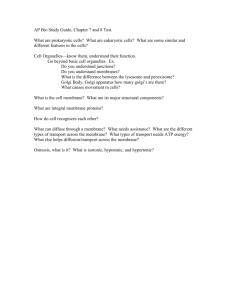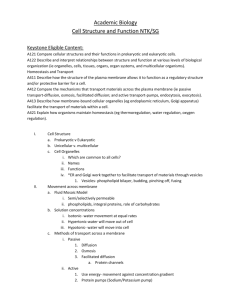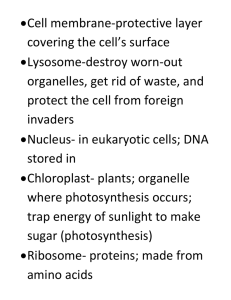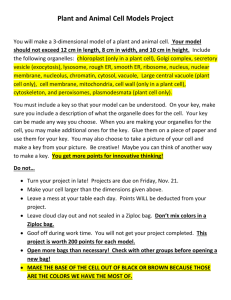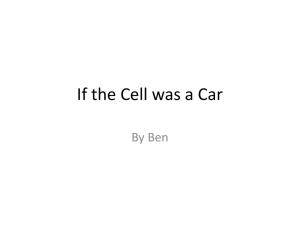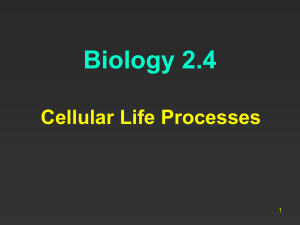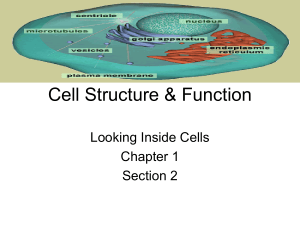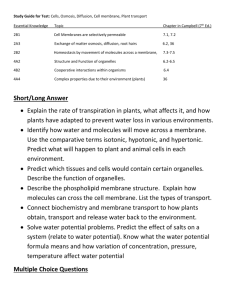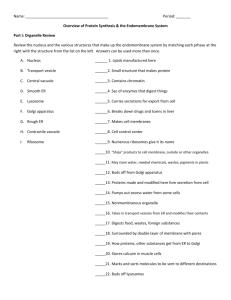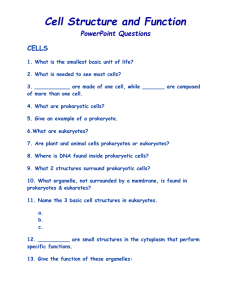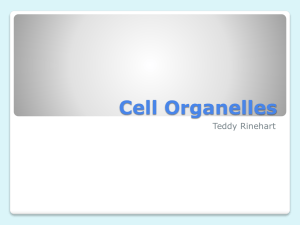Review Packet for the Unit 3 Test
advertisement
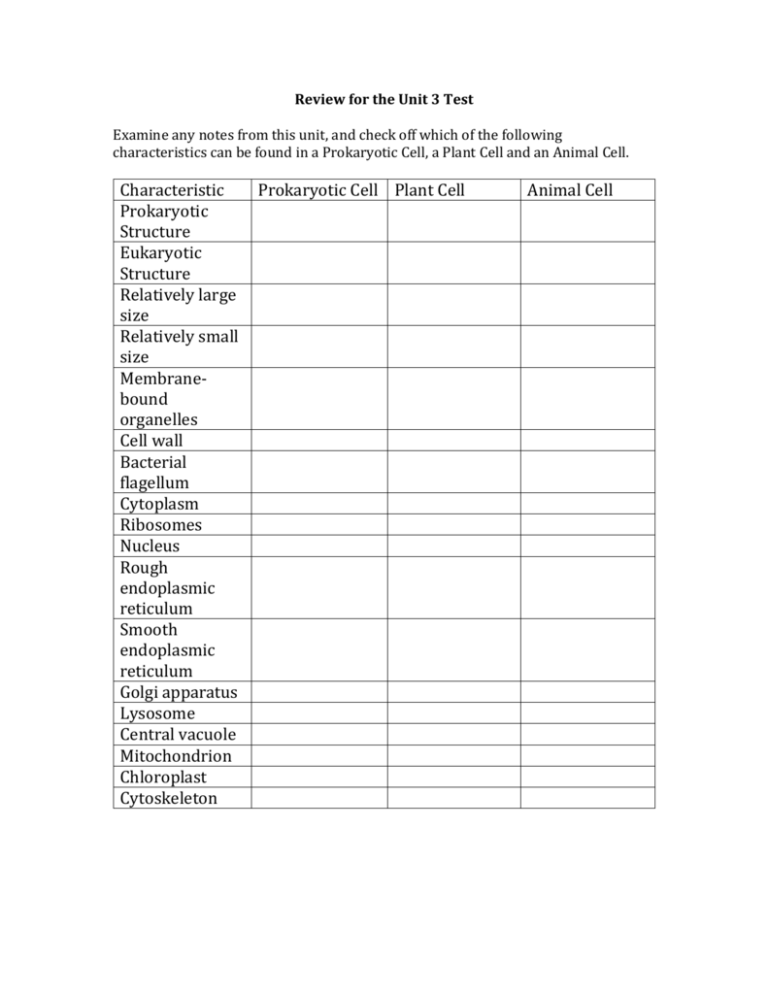
Review for the Unit 3 Test Examine any notes from this unit, and check off which of the following characteristics can be found in a Prokaryotic Cell, a Plant Cell and an Animal Cell. Characteristic Prokaryotic Structure Eukaryotic Structure Relatively large size Relatively small size Membranebound organelles Cell wall Bacterial flagellum Cytoplasm Ribosomes Nucleus Rough endoplasmic reticulum Smooth endoplasmic reticulum Golgi apparatus Lysosome Central vacuole Mitochondrion Chloroplast Cytoskeleton Prokaryotic Cell Plant Cell Animal Cell Review the structures of the cell, and match each phrase on the bottom with a structure from the list. Answers can only be used once. ____1. This organelle digests foreign substances like bacteria if they enter the cell, and it also recycles waste products and damaged organelles. ____2. Holds DNA and RNA, surrounded by a double membrane with pores ____3. Produces lipids, detoxifies, and is found in liver cells ____4. Receives the products of the cell like proteins, packages and ships them out of the cell. ____5. Buds from the rough ER and the golgi, usually carries the products of the cell to the membrane. ____6. Reads the RNA code from the nucleus and produces the primary structure of protein ____7. Breaks down glucose into a smaller form of energy that the cell can use ____8. Barrier between the cell and the external environment; lets certain things like oxygen and carbon dioxide in and out, contains proteins, cholesterol, and phospholipids ____9. Takes the primary protein structure from the ribosomes, builds the final protein structure and ships it to the golgi apparatus ____10. Found only in plant cells, A. B. C. D. E. F. G. H. I. J. Nucleus Transport vesicle Central vacuole Smooth ER Lysosome Golgi apparatus Rough ER Ribosome Plasma membrane Mitochondria Comparing Organelles: The following organelles are associated with transport in and out of the cell. Give their function as it pertains to transport. Organelle Name Function (in terms of transport) Plasma membrane Vesicles Rough ER Golgi Apparatus The following organelles are associated with the conversion of food into energy, or energy into food. Explain how each one relates to this function. Organelle Name Function (in terms of transport) Mitochondrion Chloroplast Lysosome Vacuole Review the concepts of diffusion and the function of the cell membrane. Match each of the phrases on the bottom with the appropriate mechanisms from the list. ___________ 1. Diffusion across a biological membrane ___________ 2. Moves solutes from low concentration to high, uses energy ___________ 3. Any spread of molecules from area of higher concentration to area of lower concentration ___________ 4. Diffusion with the help of a transport protein ___________ 5. Diffusion of water across selectively permeable membrane, from hypotonic to hypertonic solution ___________ 6. Transport molecules need ATP to function ___________ 7. How oxygen and carbon dioxide enter and leave cells ___________ 8. Two types of passive transport ___________ 9. Moves water from a low solute concentration to a high solute concentration ___________ 10. Glucose enters the cell through this manner A. Diffusion B. Active Transport C. Osmosis D. Passive transport E. Facilitated diffusion Seawater is hypertonic in comparison to body tissues. Explain what would happen to his or her stomach cells if a shipwrecked sailor drank seawater.
